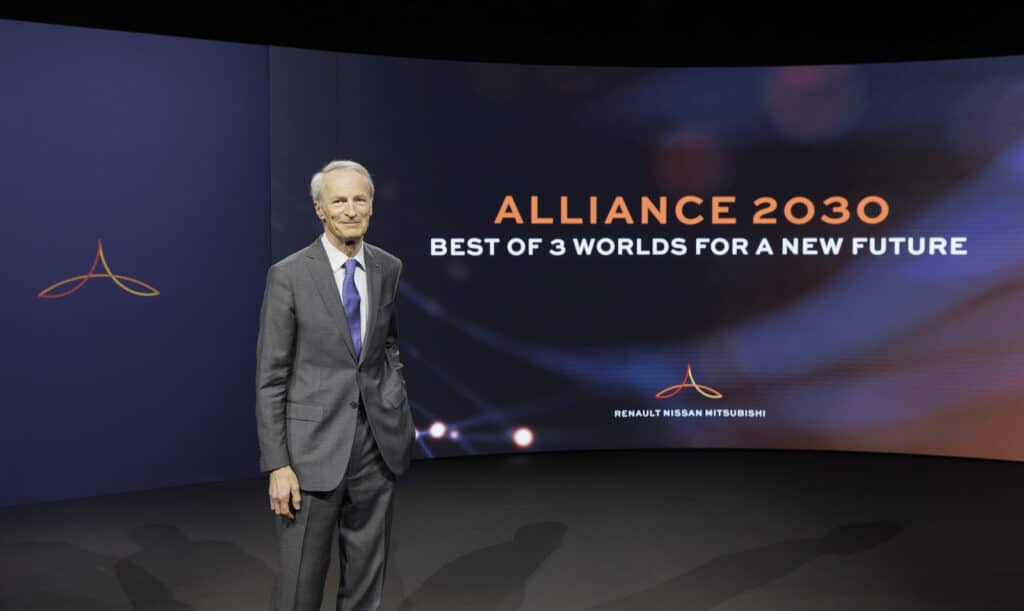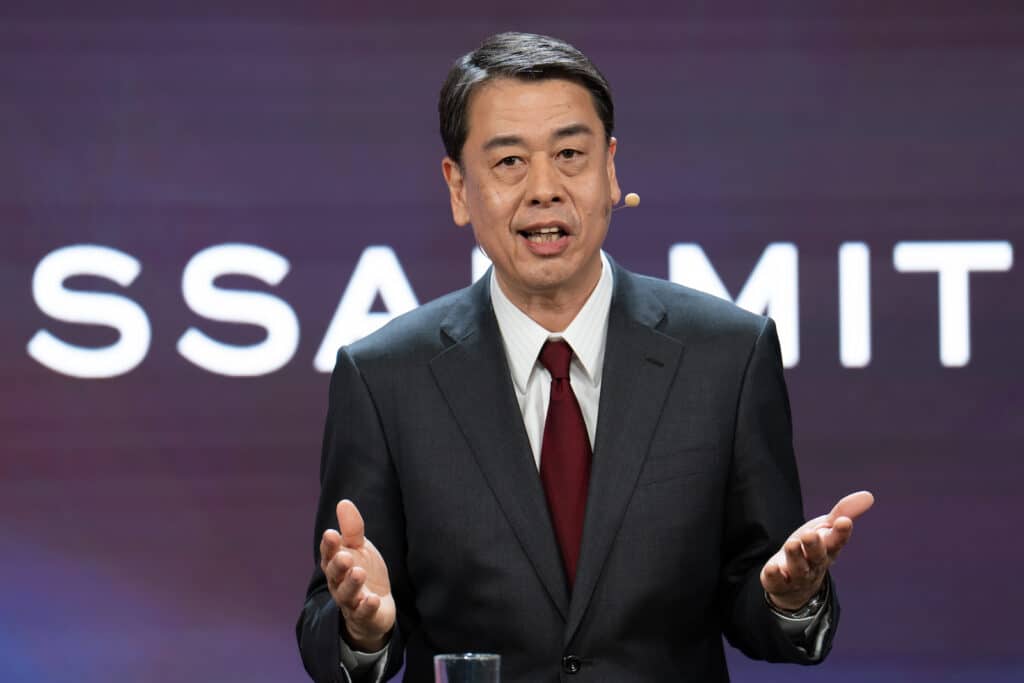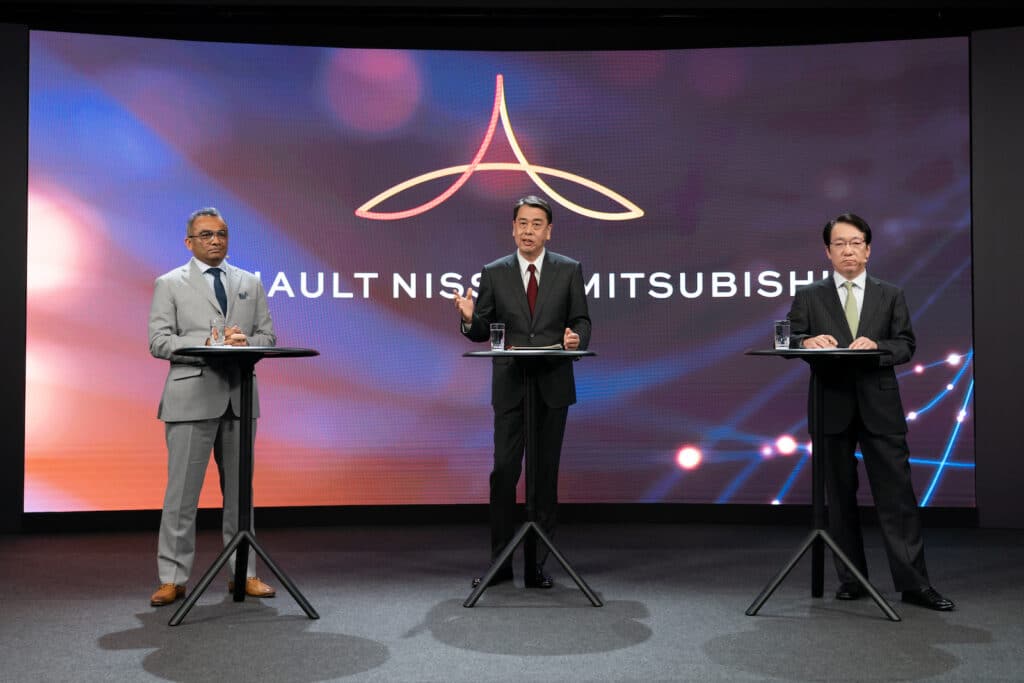Renault-Nissan-Mitsubishi Alliance Launching 35 EVs by 2030
The Euro-Asian Renault-Nissan-Mitsubishi Alliance will invest nearly $26 billion to bring 35 battery-electric vehicles to market by 2030, the partners announced.

The roadmap the alliance laid out envisions the three manufacturers sharing five common “architectures,” each targeting a unique segment of the global automotive marketplace. The program will deliver everything from electric minicars to battery-powered pickups.
The project also calls for the three automakers to set up enough capacity to produce 220 Gigawatt-hours of batteries annually. Depending upon the size of the packs used in each vehicle, that could supply enough power for 3 million or more long-range battery-electric vehicles. It would also help drive down battery production costs by as much as 65%, according to a statement from the alliance.
Plan calls for BEVs and batteries
The announcement comes just two months after Nissan officials laid out the direction for their own EV effort, the Ambition program calling for an $18 billion investment. The second-largest Japanese automaker was a pioneer in electrification, the 2011 Nissan Leaf becoming the world’s first mass production BEV. But the carmaker has fallen behind since then and is only getting ready to launch its second model line, the Ariya SUV.

The new alliance plan could help reduce Nissan’s investment by spreading costs among the three manufacturers. For starters, their future battery-car models will be based off of five common platforms capable of handling everything from the micro-compact kei cars popular in Japan to pickups and light commercial vehicles. Currently, about 60% of the vehicles produced by the alliance members share common architectures. That is expected to reach 80% by 2026, and 90% by the end of the decade.
The new program puts a high priority on setting up battery production capacity. To put things into perspective, Ford Motor Co. last September announced plans for three new lithium-ion plants in Tennessee and Kentucky with a collective capacity of about 69 Gigawatt-hours — which CEO Jim Farley said would power up about 1 million vehicles. The alliance target is 220 Gigawatts.
Solid-state
But those plants will come online at a critical time, Nissan already confirming that it hopes to begin pilot production of next-generation solid-state batteries by 2024, with its first full-volume plant to follow in 2026.

Solid-state batteries are expected to yield significantly higher energy density — meaning more stored power in smaller, lighter cells — quicker charging times and reduce costs. When Nissan launched production of its second-generation Leaf two years ago, lithium-ion batteries were going for about $150 per kilowatt-hour. That is expected to drop to somewhere between $50 and $75 per kWh late in the decade.
The three partners have only hinted at what specific products are in the works, Nissan in December showing off a line-up including several crossovers, as well as a battery pickup and some commercial vehicles. It now has confirmed it will electrify the pint-sized Micra model sold in Europe and Asia.
Connected cars
The joint program the alliance has announced also will push for the development of connected car technology. Currently, the three manufacturers have about 3 million vehicles capable of connecting to the cloud — which, among other things, allows them to update onboard software remotely. The goal is to have 25 million vehicles linked to the Alliance Cloud by 2026.
As big as the new alliance EV program might seem, it actually lags behind the plans announced by key rivals — especially when considering that the three manufacturers — Renault, Nissan and Mitsubishi — are collectively the third largest automotive group on the planet.
General Motors expects to have at least 30 BEVs in production by 2025, a point at which Volkswagen — the global number two automaker — is planning to have 50 on sale. VW will invest more than $100 billion on its own BEV program this decade.
Auto Lovers Land
Comments
Post a Comment